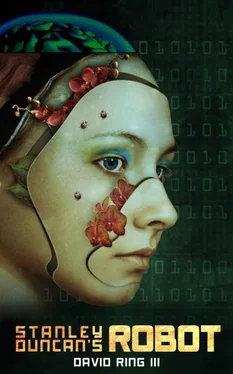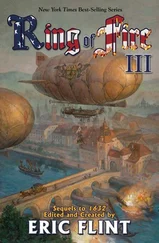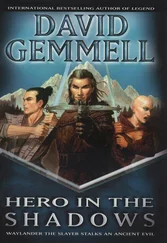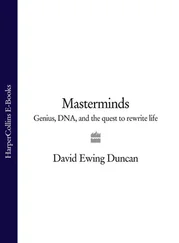Dan pulled his hand back to avoid the filth, but as he did, he was forced off balance by the man’s incredible strength. As Dan fell backward, the phone smashed against the ground. Dan jumped to his feet, kicking the man in the thigh and sending him back down against the pavement. “Stay down!”
As if the man would listen. Kicking wildly, he screamed, “I’m going to smash your stupid toaster head in.”
Dan avoided his kicks and bolted in with a knee to the chest, knocking the wind out of him. Quickly, he again pinned his arms behind his back. “Why do you hate me so much?”
“Because you’re a disgusting abomination,” he said. “You’re the devil incarnate.” The man continued to put up a fight, struggling to get Dan off of him and tossing expletives left and right.
Dan looked at his broken phone. Suddenly he realized he was all alone in a place that loathed his kind. This was exactly what Stanley had feared.
The human being is a self-propelled automaton entirely under the control of external influences. Willful and predetermined though they appear, his actions are governed not from within, but from without. He is like a float tossed about by the waves of a turbulent sea.
— Nikola Tesla
Stanley was so upset with Dan’s disobedience that he poured himself a large drink, dumping the rest of the bottle down the sink because he would be unable to stop himself otherwise. Even though he was halfway through printing one exceptional set of armor, something inside of him insisted it be better. After guzzling half of the drink, he leaned over the table and attempted calculations that soon became too confusing to understand. The layering of different weave patterns and materials changed the flexibility of the body armor — it was vitally important for Dan to move around freely — and the defensive attributes to both blunt and sharp objects. Ideally, the design would produce complete invulnerability to all dangers. Deep down, Stanley knew that the only way for that to happen would be if he stayed home all the time.
But Dan was not Stanley. Dan was destined for greater things. He was an outdoor being, and Stanley needed to do everything to support and protect him. He had even been tinkering with ideas for a decentralized police force. The concept had started as a way to help protect Dan and grew from there.
The phone rang through the condo’s speaker system. “Leticia, answer the phone,” said Stanley, embarrassed to hear his own slurred words.
The voice of Jean Morrison, the library director, filled the condo. “I put the word out about you and Dan speaking at the library next—”
“Hold on!” growled Stanley. “ Dan’s keen on it, but I never said I would. My public-speaking days are most certainly over.” The glass in his hand was shaking from how hard he was holding it. This was not what they had agreed to, and he didn’t appreciate Morrison going around putting words in his mouth.
“Doesn’t matter now. Evan’s made it clear that the event will not take place. He claims to have created an unofficial registration policy, which I had never heard of until today. How is anyone going to follow it if they don’t know about it?”
“A little technology could have gone a long way.”
“A little muscle goes pretty far, too.”
“Did he threaten you?” Not only was Dan going to be disappointed, but this little publicity stunt was going to make it even more dangerous for him. Things were only going to get worse the more exposure Machines with Dreams got.
“Not me, my daughter. She’s been fused up for years in one of his farms.”
“Oh, my God.”
“My biggest failure in life was failing to see the warning signs for my very own daughter and not stopping her from fusing out.”
“You can’t protect everyone,” said Stanley. “We all have free will, and if she refused to listen to your advice, then there is nothing more you could have done.”
“But I could have done more!”
“No, you did your best. How many men and women did you help through your campaign at the library? How many lost lives did you save?”
“I couldn’t save the one life that was most important to me.”
“How did she get mixed up with fuse in the first place?”
“Job redundancy, loss of purpose,” he said. “She worked hard all the way through med school, building up a mountain of debt, and, when she finally graduated, there were no jobs for her.”
“Didn’t she know that this was going to happen?”
“She knew long before she even graduated that she was already redundant, but the momentum was there. She had to keep going.”
Stanley pushed away his drink. “That’s awful.”
“Stanley, you’ve been fortunate. You have a great job and an amazing hobby. You don’t know what it feels like to have no purpose for living.” Morrison cleared his throat, which did nothing to mask the sorrow-filled words that squeaked out of him. “She took it so hard.”
Though he felt that it was ludicrous to be called “fortunate,” Stanley passed on arguing. “So, what did she do?”
“What could she do? Like a fan still running after it had been turned off, her momentum pushed her to keep studying. After graduating, the fading dream which led her blindly through years of hard work finally fizzled out. Smoldered. Gone. And with it, a part of her died, too.”
“But she could have done something else,” said Stanley. “Help Dad at the library.”
“Do you think I didn’t try?” said Morrison, his voice on edge. “I did all I could. We — my late wife and I — thought we were making progress. She seemed hopeful. Then my daughter stopped showing up online. Didn’t answer her phone. A week later, we got a scheduled email from her telling us what she was planning on doing. It was over before we knew it.”
Imagining the pain of losing a child like that, Stanley cupped his face with his hands. “I’m so sorry.” He didn’t want to believe Morrison’s conspiracy theories, but he couldn’t deny how well the pieces fit together.
It didn’t make sense. RaceX had been on target to lead the world, and they would have most certainly promoted machine life. Yet they had disappeared, and machine life had become the scapegoat for the world’s problems — the exact opposite of what they’d intended.
“I should have insisted she come home and be with her family. I could have called her more. I…”
Stanley didn’t know what to say. He recognized the flawed logic and knew there was no more that could be done. Of course, he understood — his own horrible mistakes continued to haunt him to this day. Calculations that could have been done better, equipment that could have been more properly stored. Even in finding that his error was insignificantly small, the guilt of being responsible for the death of someone he cared about was too impossibly large to let go of.
“I certainly had my reservations about AGI during our talk at the library, but the more I thought about it, the more I realized that you were right. This is our greatest chance of surviving the class war against the elite. I tried to reason with Evan, but he refuses to listen,” said Morrison.
“I told you he’s a psychopath.” Ripples formed in Stanley’s unfinished drink as the condo rumbled from a passing semi. He felt like there was something he was missing, but he was too drunk to put it together. Realizing this, he felt a wave of guilt come over him. Once again, he had chosen to numb himself rather than face reality. If Dan needed him, he would be in no shape to offer support.
“He was never like this. I get that we might have a difference of opinion, but to use my own daughter against me? For what? I’m doing all that I can to help mankind, just like him.”
Читать дальше












